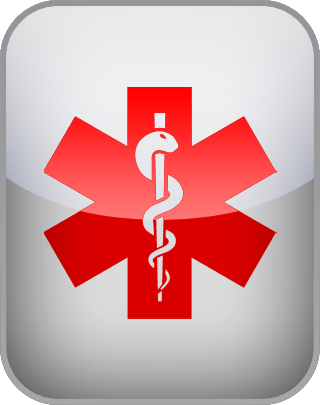Academically reviewed by Dr. Jennifer Schulz, Ph.D., associate professor of psychology
PTSD Test
Post-Traumatic Stress Disorder is a mental health condition that may develop after a person is exposed to a severely traumatic event such as traffic collisions, sexual assault, warfare, or other life-threatening situations. About 25% of individuals exposed to severe trauma will develop PTSD. Significant symptoms include disturbing thoughts and feelings, as well as vivid nightmares related to the traumatic event.
Do you have PTSD? Keeping your worst traumatic event in mind, indicate your level of agreement with each of the statements below.
Question 1 of 20
In the past month, I have...
Felt distant or cut off from other people.
| Disagree | Agree |
NEXT
The PCL-5 is based on the American Psychological Association’s diagnostic criteria, and the DSM-5 new version (2013).
The PCL for DSM-IV was revised in accordance with DSM-5 (PCL-5). Numerous important revisions were instated with the PCL-5, including changes to symptom criteria and the addition of new clusters and symptoms of PTSD (so-called subscales). The self-report rating scale for PCL-5 was also improved and recalibrated to reflect improved scientific understanding of PTSD. The improvements to the scale, combined with the increase in psychometric items, means that PCL-5 scores are not compatible with previous PCL measurements such as, for example, for the DSM-IV criteria. In other words, they cannot be used interchangeably.
This Post-Traumatic Stress Disorder (PTSD) test was developed by professionals certified in the delivery and interpretation of numerous psychological measures, and who have worked in various fields of psychology, notably personality testing. Free online tests such as this Post-Traumatic Stress Disorder (PTSD) test are intended to be informative and educational first considerations of the construct being measured; they should not, therefore, be understood to be a concrete answer regarding components of one’s personality or psychological state. This test is to be used exclusively for educational purposes. A mental health diagnosis can and should be made only by a psychiatrist or other mental health professional.
Though developed and statistically validated, free online tests such as this one cannot provide professional assessments, results, or recommendations of any kind. As the publishers of this free online Post-Traumatic Stress Disorder (PTSD) test, which allows you to screen yourself for the signs of this mental health condition that may otherwise remain unrecognized, we have strived to make the test as reliable, valid, and complete as possible. Like our other free online tests, the current PTSD test is based on scientific inventories in order to keep the results precise and accurate.
The present test is based on the inventory developed by the staff at the Veterans Affairs national center for PTSD. As a clinical instrument, this inventory is intended for use by qualified health professionals and researchers, and the present test is provided for educational purposes only. The results of our free online PTSD test are provided "as-is” and should not be interpreted as the equivalent of professional assessment or recommendations. For additional information, please consult our Terms of Service.
References
- Bliese, P. D., Wright, K. M., Adler, A. B., Cabrera, O., Castrol, C. A., & Hoge, C. W. (2008). Validating the Primary Care Posttraumatic Stress Disorder screen and the Posttraumatic Stress Disorder Checklist with soldiers returning from combat. Journal of Consulting and Clinical Psychology, 76, 272-281. doi:10.1037/0022-006X.76.2.272.
- Harrington, T., & Newman, E. (2007). The psychometric utility of two self-report measures of PTSD among women substance users. Addictive Behaviors, 32, 2788-2798. doi:10.1016/j.addbeh.2007.04.016.
- Walker, E. A., Newman, E., Dobie, D. J., Ciechanowski, P., & Katon, W. (2002). Validation of the PTSD Checklist in an HMO sample of women. General Hospital Psychiatry, 24, 375-380. doi:10.1016/S0163-8343(02)00203-7.
- Sherman, J. J., Carlson, C., Wilson, J. F., Okeson, J., & McCubbin, J. A. (2005). Posttraumatic stress disorder among patients with orofacial pain. Journal of Orofacial Pain, 19, 309-317.
- Blanchard, E. B., Jones-Alexander, J., Buckley, T. C., & Forneris, C. A. (1996). Psychometric properties of the PTSD Checklist (PCL). Behavioral Research & Therapy, 34, 669-673. doi:10.1016/0005-7967(96)00033-2.
- Kimerling, R., Prins, A., Yeager, D. E., & Magruder, K. M. (2010, November). An interval approach to screening for PTSD in primary care. Poster presented at the 44th annual conference of the Association for Behavioral and Cognitive Therapies, San Francisco, CA.
- Monson, C. M., Gradus, J. L., Young-Xu, Y., Schnurr, P. P., Price, J. L., & Schumm, J. A. (2008). Change in posttraumatic stress disorder symptoms: Do clinicians and patients agree? (PDF) Psychological Assessment, 20, 131-138. doi:10.1037/1040-3590.20.2.131

 English
English  Español
Español  Português
Português  Polski
Polski 